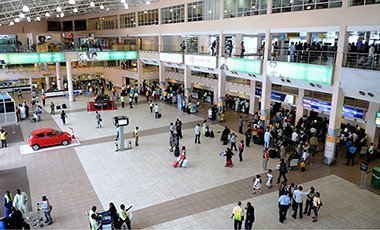On Tuesday, the National Bureau of Statistics (NBS) announced that Nigeria’s annual inflation rate increased to 24.08 per cent in July from 22.79 per cent the previous month.
According to the NBS, the headline inflation rate was 4.44 percentage points higher annually than the rate, which was 19.64 percentage points in July 2022.
This demonstrates that, according to the report, the headline inflation rate increased in July 2023 compared to the same month last year (July 2022).
The research states that the food inflation rate climbed from 25.25 per cent in June to 26.98 per cent in July.
Although food costs have been rising across Nigeria in recent years, the situation has worsened due to government measures, including the elimination of the gas subsidy, among others.
President Tinubu announced the removal of the petrol subsidy on May 29 during his inauguration. This situation has caused many Nigerians hardship, as the cost of goods and services has risen.
As part of its efforts to promote market transparency and raise investor trust, the Central Bank of Nigeria (CBN) recently announced the unification of all segments of the foreign exchange (FX) market and the removal of subsidies.
Although the programme has received much praise for being well-intentioned and essential, it has increased pressure on the local currency and manufacturers, impacting costs.
President Tinubu announced the abolition of the petrol subsidy on May 29 during his inauguration. This decision has caused many Nigerians hardship, as the cost of goods and services has risen.
As part of its efforts to promote market transparency and raise investor trust, the Central Bank of Nigeria (CBN) recently announced the unification of all segments of the foreign exchange (FX) market and the removal of subsidies.
Although the programme has received much praise for being well-intentioned and essential, it has increased pressure on the local currency and manufacturers, impacting costs.
The biggest economy in Africa has continued to experience excessive inflation, which has prompted the central bank to raise interest rates to their highest levels in almost two decades.
The benchmark lending rate of the Central Bank of Nigeria (CBN) increased to 18.75% in July.
The bank said, “Hiking the interest rate has made a lot of difference in moderating the rate of inflation”.
Based on the anticipated infusions of cash into the economy from recent attempts to integrate the country’s foreign exchange markets, it was highlighted that the option to continue the policy rate hike, albeit marginally, also presented a solid alternative.
State of Emergency
In July, Tinubu proclaimed a state of emergency on food insecurity to combat the rise in food costs.
He also directed that “all matters pertaining to food & water availability and affordability, as essential livelihood items, be included within the purview of the National Security Council.”










